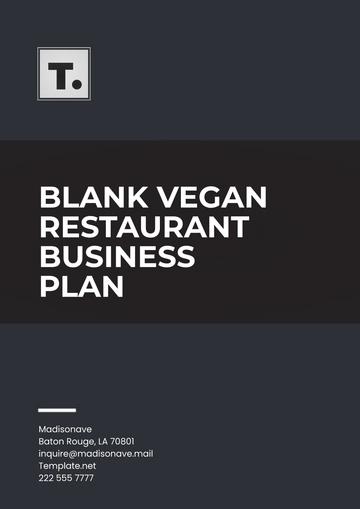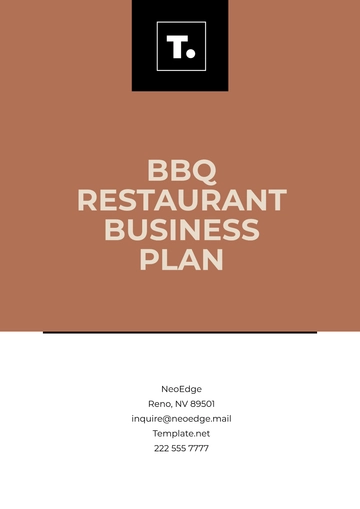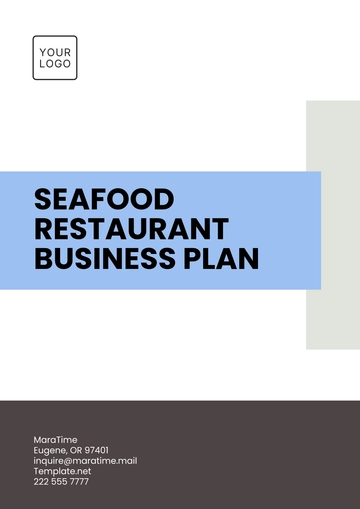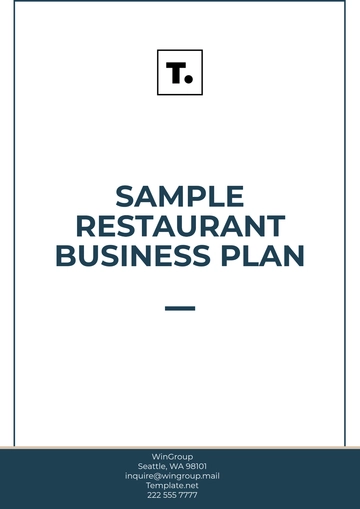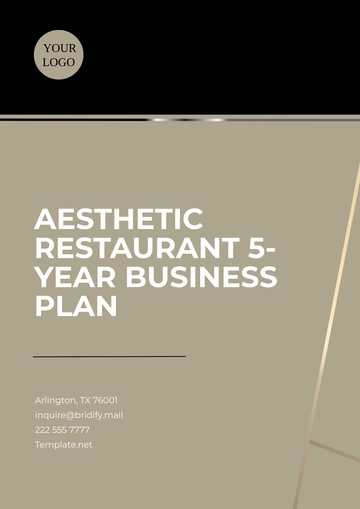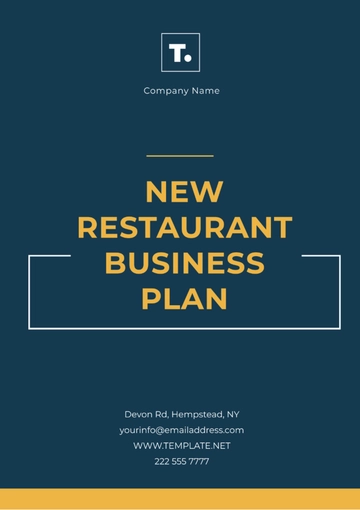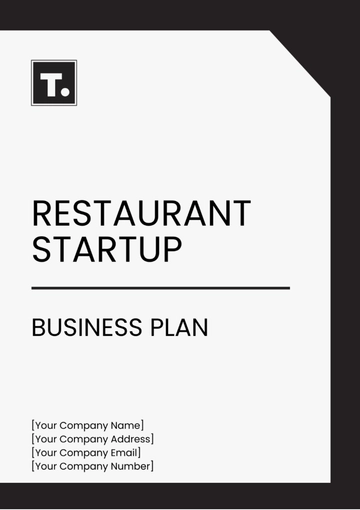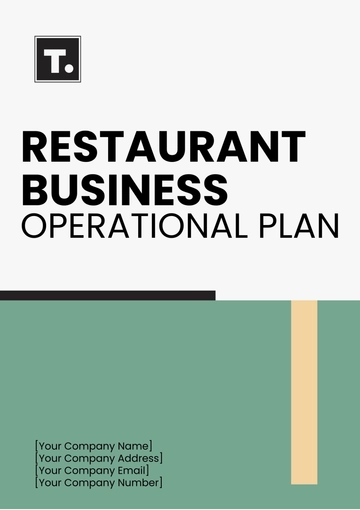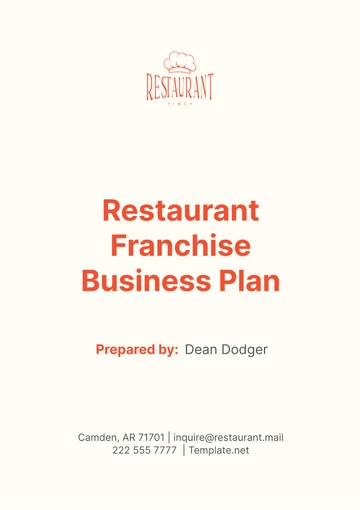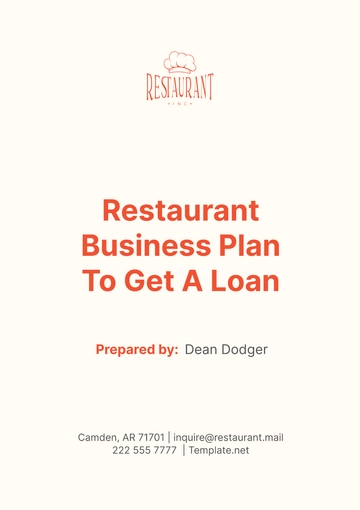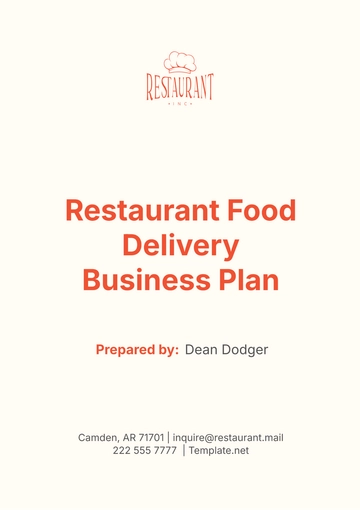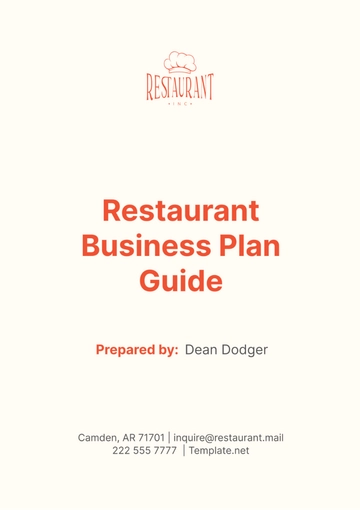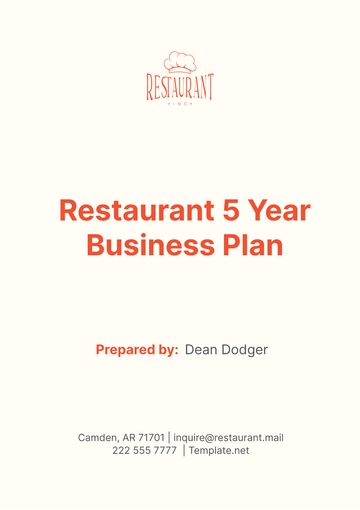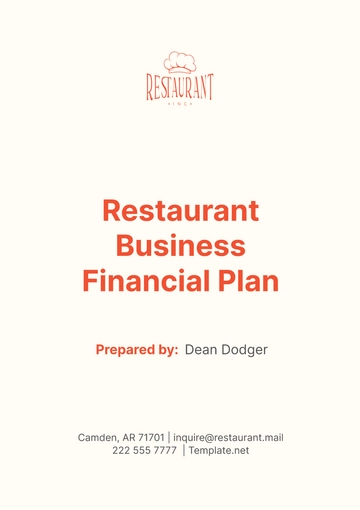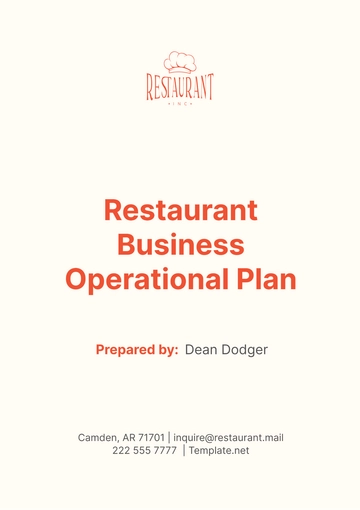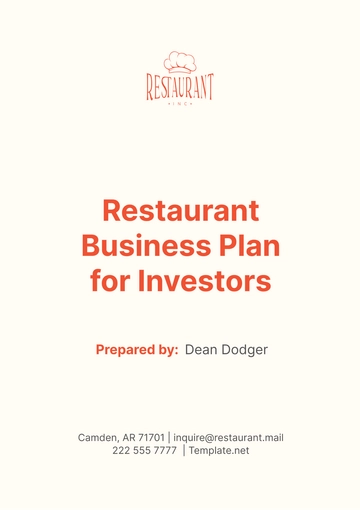Free Restaurant Business Operational Plan
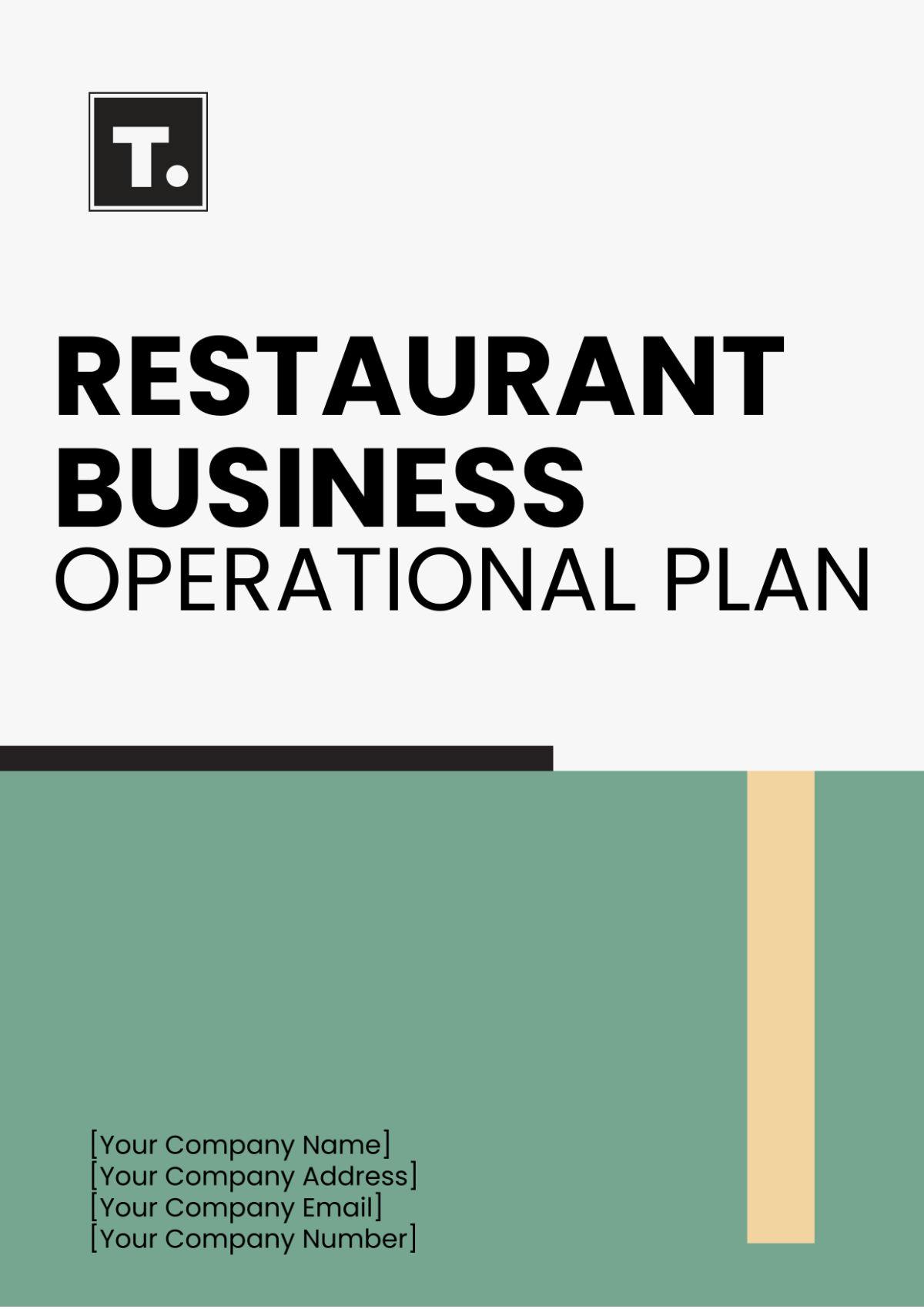
I. Executive Summary
This Restaurant Business Operational Plan is provided to detail the strategies and operations essential for the successful initiation and management of [Restaurant Name]. This plan encompasses key aspects such as management structure, marketing strategies, financial projections, and more.
II. Business Description
A. Concept Overview
[Restaurant Name] will be a French fusion restaurant. The restaurant will focus on providing high-quality, locally sourced ingredients to create an elevated dining experience for our guests.
B. Target Market
Our target market includes affluent professionals, food enthusiasts, and tourists seeking unique culinary experiences in the area.
III. Management and Organization
A. Management Team
1. Owner/Founder: [Your Name]
Email: [Your Email]
Phone: [Your Number]
2. General Manager: [Manager's Name]
Email: [Manager's Email]
Phone: [Manager's Phone Number]
B. Staffing Plan
Position | Number Required | Responsibilities |
|---|---|---|
Head Chef | 1 | Menu development, kitchen management |
Sous Chef | 2 | Food preparation, inventory management |
Servers | 6 | Customer service, order taking |
Bartenders | 3 | Mixology, beverage service |
Host/Hostess | 2 | Greeting guests, managing reservations |
Dishwashers | 2 | Dishwashing, kitchen cleanliness |
IV. Menu and Offerings
A. Menu Concept
Our menu will feature a diverse selection of French fusion dishes, with an emphasis on seasonal ingredients and innovative culinary techniques.
B. Pricing Strategy
Prices will be set competitively within the market, reflecting the quality and uniqueness of our offerings.
V. Marketing and Sales Strategy
A. Branding and Positioning
[Your Company Name] will position itself as a premier dining destination, emphasizing quality, hospitality, and culinary creativity.
B. Marketing Channels
1. Online Presence
Website: [Your Company Website]
Social Media: [Your Company Social Media]
2. Local Partnerships
Collaborations with local businesses and influencers
Participation in food festivals and events
VI. Operational Plan
A. Operating Hours
[Restaurant Name] will operate seven days a week from 11:00 AM to 11:00 PM.
B. Inventory Management
1. Suppliers
Establish relationships with local farmers and suppliers for fresh ingredients
Implement an inventory tracking system to monitor stock levels
2. Kitchen Operations
Standardize recipes and portion sizes for consistency
Conduct regular inventory audits to minimize waste
VII. Financial Plan
A. Startup Costs
1. Initial Investment
Expense | Amount ($) |
|---|---|
Lease/Rent Deposit | $50,000 |
Kitchen Equipment | $100,000 |
Interior Furnishings | $30,000 |
Initial Inventory | $20,000 |
Marketing Materials | $10,000 |
Licenses and Permits | $5,000 |
2. Funding Sources
Owner's Equity: $150,000
Bank Loan: $100,000
B. Revenue Projections
1. Sales Forecast
Year | Total Revenue ($) |
|---|---|
2050 | $800,000 |
2051 | $1,200,000 |
2052 | $1,500,000 |
2. Break-Even Analysis
Break-Even Point: $40,000/month
Projected Monthly Sales: $80,000
Year | Total Revenue ($) | Total Expenses ($) | Net Profit ($) |
|---|---|---|---|
2050 | $800,000 | $600,000 | $200,000 |
2051 | $1,200,000 | $800,000 | $400,000 |
2052 | $1,500,000 | $900,000 | $600,000 |
VIII. Risk Management
A. SWOT Analysis
Category | Strengths | Weaknesses | Opportunities | Threats |
|---|---|---|---|---|
[Restaurant Name] | - Prime location | - High startup costs | - Growing demand | - Economic downturn |
- Experienced team | - Seasonal ingredients | - Collaborations | - Fluctuations | |
- Unique menu | - Competition | - Expansion | - Negative reviews |
- 100% Customizable, free editor
- Access 1 Million+ Templates, photo’s & graphics
- Download or share as a template
- Click and replace photos, graphics, text, backgrounds
- Resize, crop, AI write & more
- Access advanced editor
Introducing the Restaurant Business Operational Plan Template, meticulously crafted by Template.net for comprehensive planning and management of restaurant operations. This customizable document empowers restaurateurs to outline their operational goals, menu planning, staffing requirements, health and safety protocols, and resource allocations. With editable features and a user-friendly layout, it facilitates tailored operational planning to meet specific restaurant objectives and industry standards. Streamline your restaurant management process and gain valuable insights into optimizing workflows, enhancing customer service, and managing resources efficiently. Elevate your restaurant’s success with this versatile template, your essential tool for achieving operational excellence and delivering exceptional dining experiences.
You may also like
- One Page Business Plan
- Coffee Shop Business Plan
- Restaurant Business Plan
- Food Business Plan
- Real Estate Business Plan
- Executive Summary Business Plan
- Cover Page Business Plan
- Nonprofit Business Plan
- Daycare Business Plan
- Construction Business Plan
- Startup Business Plan
- Medical Business Plan
- Bakery Business Plan
- Service Plan
- Hotel Business Plan
- Catering Business Plan
- School Business Plan
- Healthcare Business Plan
- Transportation Plan
- Sports Plan
- Car Wash Business Plan
- Salon Business Plan
- Clothing Business Plan
- Farming Business Plan
- Boutique Plan
